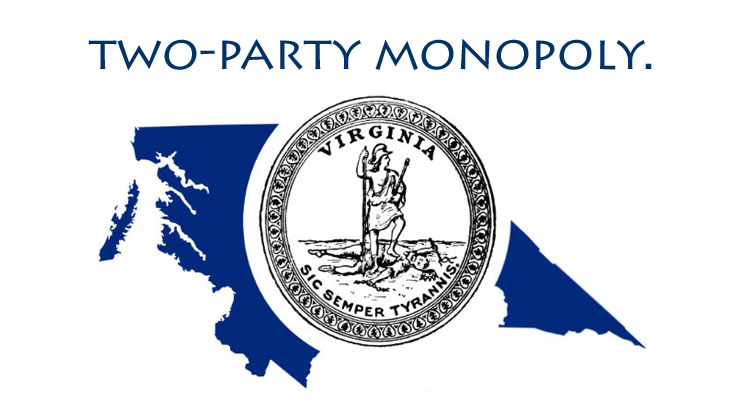
Virginia politicians defeated the latest attempt to reform the state law that determines which independent and third party candidates may run for elected office. The latest information was published by Richard Winger who has for years been seen as a leading expert in ballot access law for independent and third party candidates.
The bill, defeated by committee on February 1st, “would have eased the definition of “political party” from a group that polled 10% for any statewide race at either of the last two elections, to 3%”, according to Winger. The defeated bill was introduced by Republican Virginia House Delegate Nicholas Freitas who today is campaigning to win nomination as the Republican candidate for US Senate in 2018.
This bill was one of 91 bills that are awaiting review at Virginia’s House Privileges and Elections Committee, according to Richmond Sunlight, an amazing transparency organization aggregating information about the government of Virginia. According to the Richmond Sunlight, other laws to come before this powerful committee include redistricting, student voter registration, voter id repeal, and campaign finance transparency.
To understand the basics of how the Virginia system to register as a candidate (if you are not a Democrat or Republican of course) works today, here is some great information compiled by the impressive American politics and elections online encyclopedia Ballotpedia concerning the most up-to-date Virginia Ballot Access laws for independent candidates for the United States House of Representatives or the United States Senate for the 2018:
The candidate “must file a declaration of candidacy, a petition, and a candidate qualification certificate form with the Virginia State Board of Elections. A candidate for statewide office or the Virginia General Assembly must file a declaration of candidacy form, a petition, a statement of economic interests form, and a candidate qualification certificate form. The candidate must file the required forms by 7:00 p.m. on the second Tuesday in June.”
“A candidate for local office must file a declaration of candidacy, a petition, a statement of economic interests form, and a candidate qualification certificate form with the local authority in the county or city in which the office is being sought. The candidate must submit the required forms by 7:00 p.m. on the second Tuesday in June. An independent candidate must gather the same number of petition signatures as partisan candidates. There are no filing fees for independent candidates.”
For some wider understanding of the laws that prevent the success of independent and third party candidates in Virginia, this video below has an interview with the 2016 Libertarian candidate for Governor of Virginia Robert Sarvis. In the video, recorded during the election, Sarvis talks about his hope of not being prevented from participating in the debates with the Democratic and Republican candidates that were scheduled to take place. After the video was made, he learned he would not be allowed to participate. The video gives a good inside view of how many hurdles he faced throughout the campaign.
The video is about ten minutes. Take a look:
https://www.youtube.com/watch?v=qxda9VacWvQ
Leave a Reply